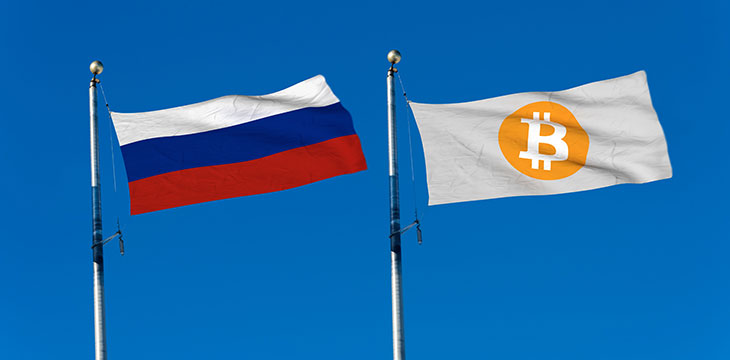|
Getting your Trinity Audio player ready...
|
An initiative in Russia to outline a digital economy will soon go before the country’s Duma, or governmental body, for consideration. The Duma’s Committee for Legislative Work (CLW) will review the framework, which, if approved, will be added to Russia’s Civil Code. The country has been working on cryptocurrency regulations for some time, and this is just the latest measure to make regulations a reality.
The initiative will go before the CLW next week. This step could pave the way for cryptocurrencies to be considered legal tender, but that decision ultimately lies with the Ministry of Finance, the Central Bank and the Ministry of Economic Development. While not yet a legal form of payment, the move would provide legal guidelines for digital signatures. Specifically, the initiative stipulates that a digital confirmation provided through a smart contract is the same as written consent.
The head of the CLW and member of the United Russia political party, Pavel Krasheninnikov, told Russian news outlet Izvestia that the initiative is designed to “minimize the existing risks of using digital objects for transferring assets into an unregulated digital environment for legalization of criminal incomes, bankruptcy fraud or for sponsoring terrorist groups.”
The past March, a bill was introduced to the Duma that covers both cryptocurrencies and initial coin offerings (ICO). The bill, “On Digital Financial Assets,” was drafted after President Vladimir Putin announced that he expected to have cryptocurrency regulations in place by the beginning of June 2018.
The March bill outlines cryptocurrency as assets that can only be traded on authorized exchanges. It goes further, stipulating that users registering on a crypto exchange adhere to anti-money laundering laws, as well as counter terrorism financing regulations. The bill was edited in April to include a rider that requires any exchange of cryptocurrency for fiat worth more than approximately $9,600 to meet mandatory exchange regulations.
The introduction of laws governing blockchains and cryptocurrency will bolster the confidence in digital currency. Igor Sudets, program director of “Blockchain for Lawyers” at Moscow’s Plekhanov Russian University of Economics, told the Russian news outlet that it is important that the Russian Federation provide legal guidelines for cryptocurrency and tokens, saying, “On the one hand, these are opportunities that we have no right to miss. On the other hand, while they are outside the legal field, they can be used to give bribes, withdraw money in the case of bankruptcy, pay ‘black salaries, and simply get stolen—with no repercussions [for criminals].”

 02-18-2026
02-18-2026 




